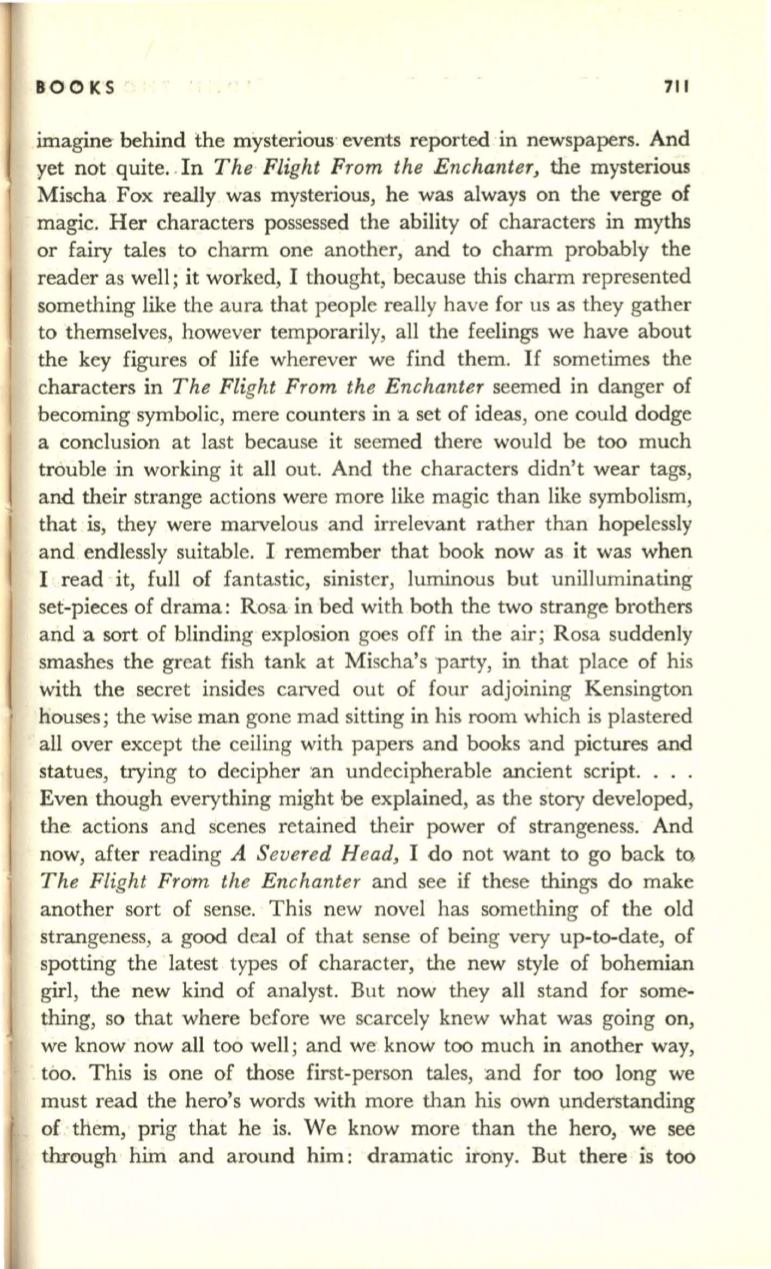
800KS
711
imagine-behind the mysterious-events reported in newspapers. And
yet not quite. _ In
The Flight From the Enchanter,
the mysterious
Mischa Fox really was mysterious, he was always on the verge of
magic. Her characters possessed the ability of characters in myths
or fairy tales to charm one another, and to charm probably the
reader as well; it worked, I thought, because this charm represented
something like the aura that people really have for us as they gather
to themselves, however temporarily, all the feelings we have about
the key figures of life wherever we find them.
If
sometimes the
characters in
The Flight From the Enchanter
seemed in danger of
becoming symbolic, mere counters in a set of ideas, one could dodge
a conclusion at last because it seemed there would be too much
trouble -in working it all out. And the characters didn't wear tags,
and their strange actions were more like magic than like symbolism,
that
is,
they were marvelous and irrelevant rather than hopelessly
and endlessly suitable. I remember that book now as it was when
I read -it, full of fantastic, sinister, luminous but unilluminating
set-pieces of drama: Rosa in bed with both the two strange brothers
and a sort of blinding explosion goes off in the air; Rosa suddenly
smashes the great fish tank at Mischa's party, in that place of his
with the secret insides carved out of four adjoining Kensington
houses; the wise man gone mad sitting in his room which is plastered
all over except the ceiling with papers and books and pictures and
statues, trying to decipher an undecipherable ancient script. . . .
Even though everything might be explained, as the story developed,
the. actions and scenes retained their power of strangeness. And
now, after reading
A Severed Head,
I do not want to go back to
The Flight From the Enchanter
and see
if
these things do make
another sort of sense. This new novel has something of the old
strangeness, a good deal of that sense of being very up-to-date, of
spotting the latest types of character, the new style of bohemian
girl, the new kind of analyst. But now they all stand for some–
thing, so that where before we scarcely knew what was going on,
we know now all too well; and we know too much in another way,
too. This is one of those first-person tales, and for too long we
must read the hero's words with more than his own understanding
of them, prig that he is. We know more than the hero, we see
through
him
and around him: dramatic irony. But there is too


